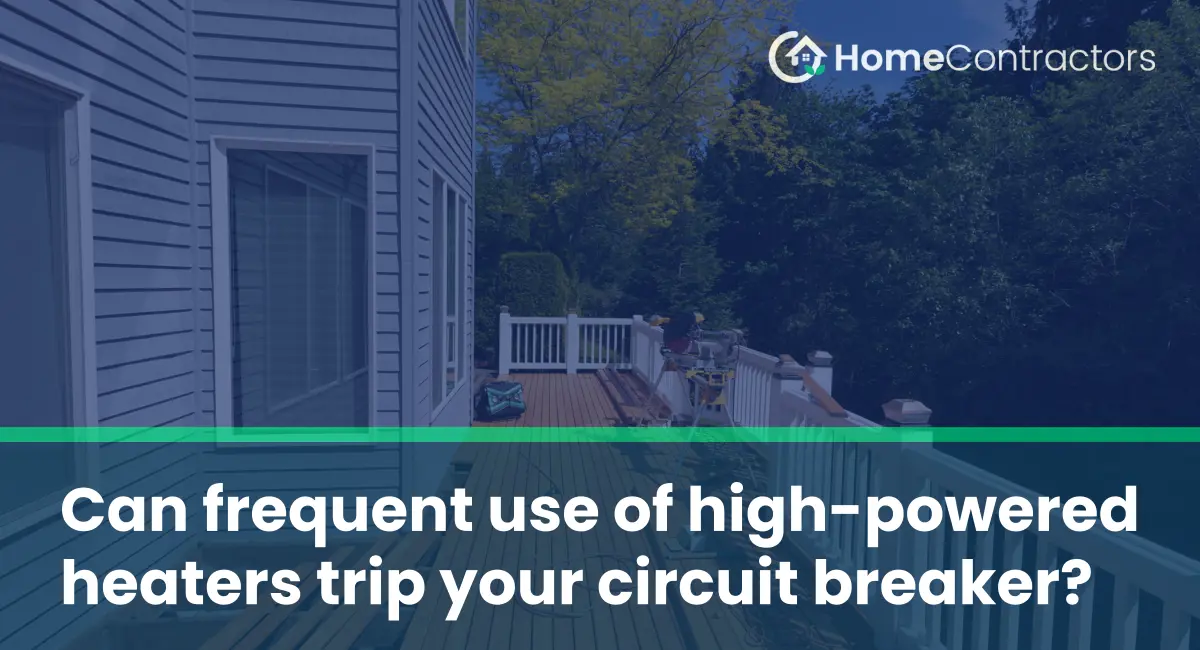Heaters work by converting electrical energy into heat. When you switch on a high-powered heater, it draws a significant amount of electricity from the circuit to generate the required heat. As a result, this increased electrical load may potentially overload the circuit, leading to a tripped circuit breaker.
Circuit Breaker Ratings
Circuit breakers are rated based on the amount of current they can handle without tripping. Common residential circuit breakers have ratings ranging from 15 to 20 amps. When an electrical circuit draws excessive current beyond the capacity of the breaker, it automatically trips to prevent overheating and potential hazards.
High-Powered Heaters and Circuit Breakers
The issue of whether frequent use of high-powered heaters can trip circuit breakers depends on several factors, including the total power consumption of the heaters and the electrical capacity of the circuit. Let’s explore these factors in more detail.
Power Consumption
High-powered heaters come in various wattages, typically ranging from 1500 to 5000 watts. The higher the wattage, the more electricity the heater will draw from the circuit. If multiple high-powered heaters are used simultaneously on the same circuit, the collective power consumption increases, increasing the likelihood of tripping the circuit breaker.
Electrical Capacity
The electrical capacity of a circuit depends on factors such as wire gauge, the amperage rating of the circuit breaker, and the overall design of the electrical system. Older homes may have lower-capacity circuits compared to newer constructions. If the circuit’s capacity is already close to its maximum limit, adding a high-powered heater could cause it to trip more frequently.
Solutions to Prevent Circuit Tripping
While it is true that frequent use of high-powered heaters can potentially trip circuit breakers, there are various solutions to minimize this issue.
1. Distribute the Load
If you regularly experience tripped circuit breakers when using high-powered heaters, consider distributing the load across multiple circuits. Avoid plugging all the heaters into a single circuit, as this can overload it. Instead, spread the heaters across different circuits in your home to balance the power consumption.
2. Reduce Heater Wattage
If possible, consider using lower wattage heaters. While high-powered heaters provide quick and efficient heating, they also draw more current. By opting for lower wattage heaters, you decrease the strain on the circuit and reduce the chances of tripping the circuit breaker.
3. Upgrade Electrical Circuits
If you frequently rely on high-powered heaters, it might be worth upgrading the electrical circuits in your home. Consult with a licensed electrician to assess the capacity of your current circuit and determine if upgrades are necessary. This could involve increasing the amperage rating of circuit breakers, replacing older wiring with thicker gauges, or even installing additional circuits.
Frequent use of high-powered heaters can potentially trip circuit breakers, particularly if power consumption exceeds the circuit’s capacity. Understanding circuit breaker ratings, power consumption of heaters, and the electrical capacity of your circuits is crucial in preventing circuit tripping. By distributing the load, opting for lower wattage heaters, or upgrading your electrical circuits, you can minimize the chances of tripping circuit breakers and ensure a comfortable and safe heating experience.
